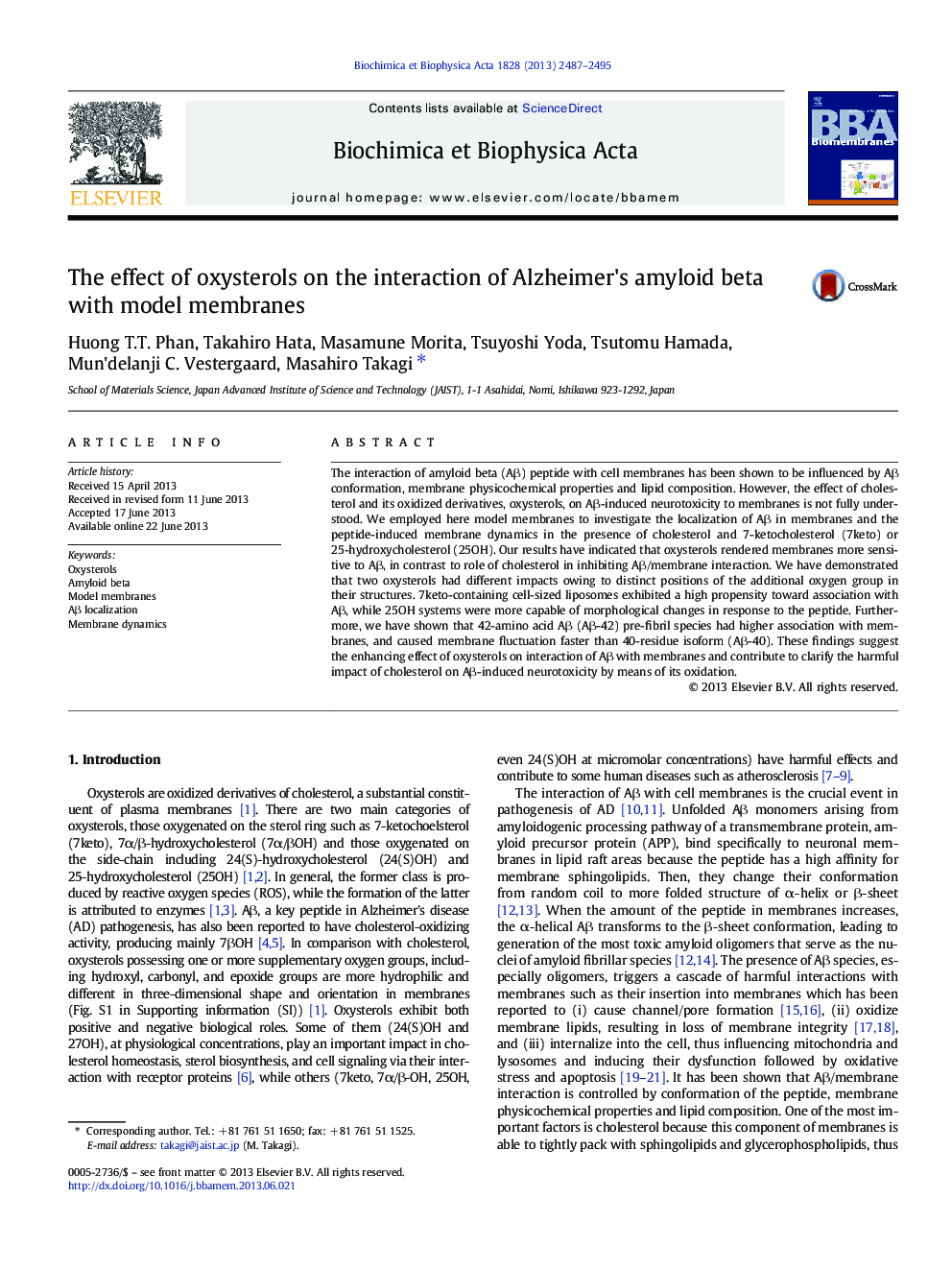| Article ID | Journal | Published Year | Pages | File Type |
|---|---|---|---|---|
| 1944294 | Biochimica et Biophysica Acta (BBA) - Biomembranes | 2013 | 9 Pages |
•Cholesterol inhibited Aβ to localize and induce membrane transformation.•Oxysterols facilitated interaction of the peptide with membranes.•7keto significantly increased Aβ localization in membranes.•25OH promoted Aβ-induced membrane transformation.
The interaction of amyloid beta (Aβ) peptide with cell membranes has been shown to be influenced by Aβ conformation, membrane physicochemical properties and lipid composition. However, the effect of cholesterol and its oxidized derivatives, oxysterols, on Aβ-induced neurotoxicity to membranes is not fully understood. We employed here model membranes to investigate the localization of Aβ in membranes and the peptide-induced membrane dynamics in the presence of cholesterol and 7-ketocholesterol (7keto) or 25-hydroxycholesterol (25OH). Our results have indicated that oxysterols rendered membranes more sensitive to Aβ, in contrast to role of cholesterol in inhibiting Aβ/membrane interaction. We have demonstrated that two oxysterols had different impacts owing to distinct positions of the additional oxygen group in their structures. 7keto-containing cell-sized liposomes exhibited a high propensity toward association with Aβ, while 25OH systems were more capable of morphological changes in response to the peptide. Furthermore, we have shown that 42-amino acid Aβ (Aβ-42) pre-fibril species had higher association with membranes, and caused membrane fluctuation faster than 40-residue isoform (Aβ-40). These findings suggest the enhancing effect of oxysterols on interaction of Aβ with membranes and contribute to clarify the harmful impact of cholesterol on Aβ-induced neurotoxicity by means of its oxidation.
Graphical abstractFigure optionsDownload full-size imageDownload high-quality image (110 K)Download as PowerPoint slide
